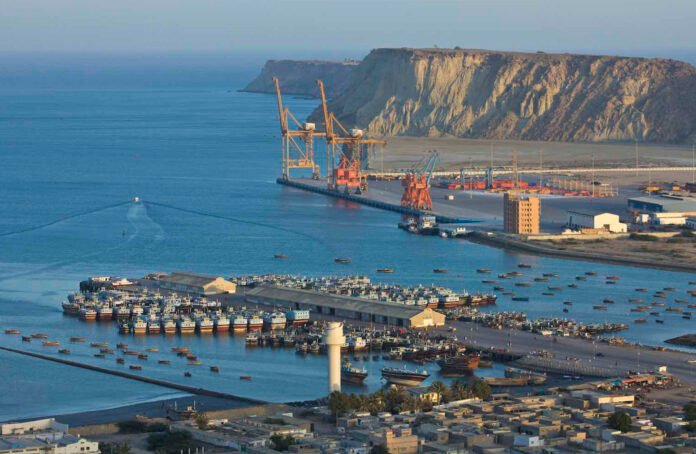Islamabad. Pakistan’s trade with China has been exposed to a gap of Rs5.5 trillion in the last five years due to under-invoicing and digital integration gaps at the country’s ports. These loopholes are leading to the manipulation of cargo manifests, declarations, and tax assessments.
Sources in the Ministry of Defense, citing the findings of the Task Force Report on Maritime Sector Reforms, have said that the operations of the country’s ports are not connected to other countries through digital channels, resulting in widespread misdeclaration.
According to sources, there are reports that a gap of Rs5.5 trillion has been exposed in trade with China during the last five years as the gaps in digital integration are being exploited to manipulate cargo, manifests, and declarations. The figure of Rs5.5 trillion has been estimated based on data sampling collected. The lack of digitalization of port processes leads to reduced tax revenue as in many cases, undervalued goods are declared.
The source said that this process is common for goods that are highly taxed. He added that there are some individual cases where the corrupt mafia takes advantage on an individual basis, including misrepresentation, manipulation of Harmonized System (HS) codes, and absence of integration in the system. One of the most important issues identified regarding revenue shortfall and evasion is the lack of required digital connectivity within the ports and with the FBR and customs authorities.
According to the task force, the existing information and communication technology (ICT) infrastructure is outdated and deficient due to a lack of integration with key businesses and support functions, resulting in errors in reconciliation, weak reporting, and port management being less integrated with the core business. This situation is adversely affecting the country’s economy.
Sources have revealed that in terms of best practices, out of 32 core processes, 11 areas are considered important for the digitalization of port operations, but in the case of Karachi Port Trust (KPT) and Port Qasim Authority (PQA), only 4 and 6 are digital respectively. The 11 areas required for digitization include Vessel and Traffic Management, Cargo and Container Management, Yard and Gate Operations, Resource Allocation and Management, Safety/Security/Emergency Management, Environmental Monitoring and Sustainability, Staff and Passenger Management, Infrastructure and Maintenance, Billing/Invoicing/Financial Operations, Communications and Stakeholder Collaboration, and Data Analysis.
According to sources, in the case of Pakistan, stating the “point of origin” and “declaring goods” at the time of import is not mandatory. Along with this, the lack of external connectivity and the absence of technology to resolve the issues leads to fake invoicing, false declaration (including diplomatic cargo), money laundering, tax evasion, smuggling, and misuse of green channels.
Moreover, due to under-estimation or over-estimation, it is not known how much tax is due and how much tax is to be refunded. The sources gave a hypothetical example, saying that the import of “carbon steel pipe”, whose actual price is $0.9 per kg, but its price is estimated at $0.69 per kg, could result in under-invoicing of Rs 20 million on a 500-ton consignment.
In addition, manipulation of Harmonized System codes and lack of provisions in the systems lead to tax evasion. For example, if the actual price of deodorant spray is $4.6 per kilogram, then there may be under-invoicing, where there is a possibility of this spray being included in another category due to manipulation of harmonized codes or lack of system updates. The result of this situation will be that the actual amount will not be revealed in the analysis (under-assessment) and tax evasion may occur.
Web-Based One Customs is a locally developed software that is a computerized system for the declaration and clearance of imported and exported goods. However, the source said, it is an old system with outdated hardware and software configuration. Even the scanners have not been linked to the digital requirements in the appraisal system. He added that the inspection system is also not linked to the central system, so there is a possibility of errors, manipulation, and delays.
Financial transactions through the “Pakistan Single Window” are also not done digitally, leading to errors and estimated tax evasion worth trillions of rupees. Many problems in the domains of digitization and digital connectivity undermine investor confidence, reduce the potential for revenue growth, and hinder tax collection. It is also difficult to estimate the overall losses due to manual work and lack of technical controls, the sources said



